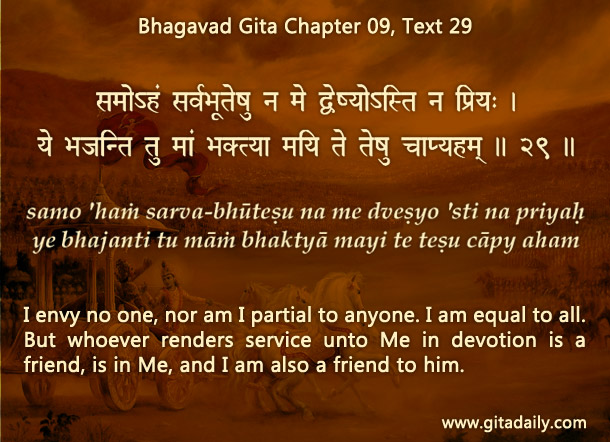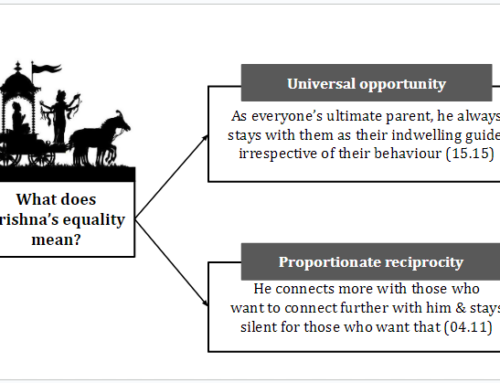God is one. While this truth is taught by all theistic traditions, Gita wisdom adds a significant detail: His oneness doesn’t limit him to one form. He has many different manifestations, which reflect his different moods.
For example, the Prime Minister of a country may act differently at different places: formal in office, informal at home. In Krishna’s case, because he is omnipotent and omnipresent, he can be simultaneously manifest in two different places in two different moods. He manifests as a judge to those who are living under the universe’s laws of karma, and he manifest as the supreme and the supremely attractive lover to those who approach him with love.
The differing moods associated with different manifestations are conveyed in a paradoxical Bhagavad-gita verse (09.29). The verse’s first half states that Krishna is equal to all, being neither partial towards anyone, nor inimical towards anyone. Its second half declares that those who worship me with devotion, they are in him and he is in them. Does this intimate bond of hearts indicate partiality? No, it indicates reciprocity.
When a judge is in office, if the judge’s own child comes up as defendant, the judge will be neutral. But when that same judge comes back home and meets his son, he will deal with his son much more personally. The verse’s first half talks about the Absolute’s role as the Supersoul, the indwelling judge ; its second half refers to the Absolute’s manifestation as Bhagavan, the all-attractive supreme lover and lovable Lord.
Such is the richness of the understanding of God revealed in the Bhagavad-gita. This same Lord who manifests different moods to attract people at different levels of consciousness manifests his supreme sweetness in his all-attractive manifestation as Krishna. And that Krishna opens his heart and opens his arms to invite us to him by the loving message of the Bhagavad-gita.

To know more about this verse, please click on the image
Explanation of article:
Podcast:


GITA leads us to KRISHNA